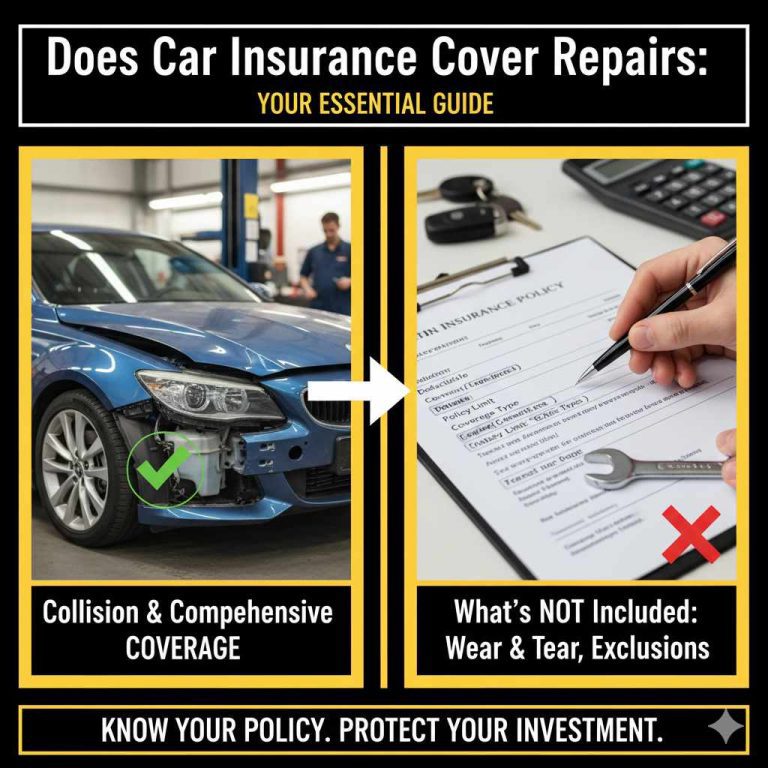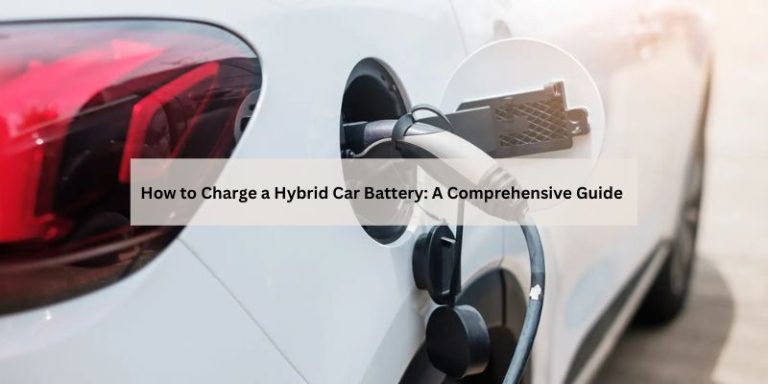Can Extreme Heat Kill a Car Battery? Avoid Meltdown!
Yes, extreme heat can kill a car battery. High temperatures accelerate battery fluid evaporation and can cause internal damage.
Extreme heat poses a significant threat to car batteries. Most batteries operate best in moderate temperatures. Excessive heat can lead to a range of issues, such as reduced lifespan and decreased performance. The heat can cause battery fluids to evaporate, leading to increased corrosion and potential failure.
Drivers often overlook this risk, especially in hot climates. Regular maintenance and monitoring are essential to ensure battery health. Understanding how heat affects battery performance can save you time and money. This blog explores the relationship between extreme heat and car batteries, offering tips to prolong battery life in sweltering conditions. Stay informed to keep your vehicle running smoothly.
Introduction To Extreme Heat And Car Batteries
Extreme heat can harm car batteries significantly. High temperatures cause batteries to lose their charge faster. The chemistry inside the battery changes in high heat. This makes batteries less efficient and can lead to failure.
Heat increases the rate of chemical reactions within the battery. This can create gas buildup, leading to leaks. A damaged battery can be dangerous and may even explode. Regular checks can help prevent these issues.
Keeping a car in a cool place can protect the battery. Parking in the shade or using a car cover can help. Regular maintenance ensures the battery lasts longer.
How Heat Affects Car Battery Lifespan
Extreme heat can seriously damage a car battery. High temperatures lead to degradation of battery components. This means the battery wears out faster.
Heat causes accelerated chemical reactions inside the battery. These reactions can produce gas, which builds pressure. Excessive pressure can result in battery failure.
Hot weather also affects the electrolyte inside the battery. It can evaporate, leading to insufficient fluid levels. Low fluid levels reduce battery performance significantly.
Keeping a battery cool helps maintain its lifespan. Parking in shaded areas or using a battery blanket can help. Regular maintenance ensures the battery stays in good condition.
Symptoms Of Heat-induced Battery Failure
Extreme heat can damage a car battery. Watch for warning signs of battery failure. A swollen battery case means trouble. Check for corrosion around the terminals. If the battery fluid is low, it may need replacement.
Testing your battery’s health is important. Use a multimeter to measure voltage. A healthy battery should read around 12.6 volts. If the reading is below 12.4 volts, it might be weak. Regular checks can help avoid breakdowns.
Look for slow engine cranking when starting. This can indicate a weak battery. Strange smells or leaks are also signs of trouble. If your battery shows these symptoms, consider getting it checked.
Preventive Measures To Protect Your Battery
Keeping your car battery cool is very important. Park in shaded areas to reduce heat exposure. Use a reflective sunshade on the windshield. This helps keep the inside of the car cooler.
Regular battery checks can also help. Inspect battery terminals for corrosion regularly. Clean any dirt or corrosion to ensure a good connection. Check water levels in non-sealed batteries and refill with distilled water if needed.
Consider using a battery insulation blanket. This can help regulate temperature. Always ensure your battery is securely fastened to avoid vibrations.
Best Batteries For High-temperature Climates
Extreme heat can harm car batteries. Choosing the right battery is essential for hot climates. Some batteries can handle high temperatures better than others. Lead-acid batteries are common and affordable. They may struggle in extreme heat.
AGM (Absorbent Glass Mat) batteries excel in high temperatures. They resist heat damage and have a longer life. Lithium-ion batteries are also great for hot weather. They charge faster and offer high performance.
| Battery Type | Heat Resistance | Durability |
|---|---|---|
| Lead-acid | Low | Average |
| AGM | High | Excellent |
| Lithium-ion | High | Very Good |
Choosing a battery with high heat resistance is smart. This ensures better performance and longer life. Consider your driving habits and climate before buying.
Emergency Steps When Your Battery Overheats
Extreme heat can cause serious damage to a car battery. If you notice your battery overheating, take immediate action. First, turn off the engine. Allow the battery to cool down. Never touch a hot battery with bare hands. Use gloves if you must.
Check for any visible damage. Look for bulging, leaking, or corrosion. If any issues arise, replace the battery immediately. It’s important to stay safe.
Seek professional help if the battery shows signs of swelling or leakage. Continuing to use a damaged battery can lead to further problems. Always prioritize safety when dealing with an overheated battery.
Innovations In Battery Technology For Heat Management
Battery technology has greatly improved in recent years. New designs help manage extreme heat. This reduces the risk of battery failure.
Engineers use special materials to protect batteries. They create heat-resistant casings that keep batteries safe. Some batteries can now operate at higher temperatures.
Future designs may include smart cooling systems. These systems would keep batteries at safe temperatures. This innovation can lead to longer battery life.
Research continues to find better solutions. Scientists are exploring new chemical compositions. These advancements promise to improve battery performance in heat.
Case Studies: Heat’s Toll On Car Batteries
Extreme heat can seriously affect car batteries. High temperatures cause battery fluid to evaporate. This leads to battery failure. Several real-life incidents show this effect clearly.
One case involved a driver in Phoenix. The temperature reached 120°F. The battery died after just two years. Another incident happened in Texas. A driver parked in direct sunlight lost battery power during a heatwave.
These events teach valuable lessons. Always park in shaded areas. Regularly check battery health during hot months. Using heat-resistant battery covers can also help.
Conclusion: Staying Cool Under The Hood
Extreme heat can seriously affect a car battery. High temperatures can cause the battery fluid to evaporate. This leads to decreased performance and a shorter lifespan. Batteries may also swell or leak, damaging the car.
Checking the battery regularly is essential. Ensure the battery terminals are clean and tight. Keep the battery cool by parking in shaded areas. Using a battery insulator can help manage temperature.
Here are some key points:
- Extreme heat can shorten battery life.
- Regular maintenance prevents issues.
- Keep batteries cool to improve performance.
Consider replacing an old battery before summer. Investing in a quality battery can save money. Regular check-ups can help avoid future problems.
Frequently Asked Questions
Can Extreme Heat Damage A Car Battery?
Yes, extreme heat can significantly damage a car battery. High temperatures accelerate the chemical reactions inside the battery, leading to increased wear and tear. This can result in reduced battery life and, in some cases, complete failure. Regular maintenance is essential to mitigate heat-related damage.
How Does Heat Affect Battery Performance?
Heat affects battery performance by increasing the internal temperature. This can lead to faster evaporation of the battery’s electrolyte. As a result, the battery can lose its charge capacity. Keeping the battery cool is crucial for optimal performance and longevity.
What Temperature Is Dangerous For Car Batteries?
Temperatures above 100°F (38°C) are considered dangerous for car batteries. At this temperature, the risk of overheating and damage increases. Prolonged exposure can lead to battery failure or reduced efficiency. It’s important to monitor battery health during hot weather.
Can I Prevent Heat Damage To My Battery?
Yes, you can prevent heat damage to your battery. Park in shaded areas or garages when possible. Additionally, regular battery checks can help identify issues early. Using heat-resistant battery covers can also provide extra protection against extreme temperatures.
Conclusion
Extreme heat can indeed harm your car battery. High temperatures accelerate chemical reactions, leading to faster wear. Regular maintenance and monitoring are essential to prolong battery life. Consider parking in shaded areas and using reflective sunshades. Protecting your battery ensures reliable performance, especially during scorching summer months.
Stay proactive for optimal vehicle health.







